 The Columbia City Yoga on-line Moving into Meditation class met this morning. We explored ways to cultivate empathy by practicing presence, recalling our intention and attuning to ourselves and others. Self attunement can help us to stay centered by having a sense of a “strong back,” a metaphor for being grounded. We ground ourselves while remaining flexible, adaptable, and open to change. We are willing to see the world as clearly as possible. In having a sense of “soft front”, we resolve to stay open to life.
The Columbia City Yoga on-line Moving into Meditation class met this morning. We explored ways to cultivate empathy by practicing presence, recalling our intention and attuning to ourselves and others. Self attunement can help us to stay centered by having a sense of a “strong back,” a metaphor for being grounded. We ground ourselves while remaining flexible, adaptable, and open to change. We are willing to see the world as clearly as possible. In having a sense of “soft front”, we resolve to stay open to life.
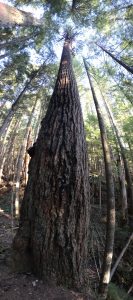 We continued to draw from Oren Jay Sofer’s book: Your Heart Was Made for This: Contemplative Practices for Meeting a World in Crisis with Courage, Integrity, and Love. Oren writes “mindfulness, curiosity, courage and wise attention all support empathy, opening our eyes to the lives of others. . . . Healing conversations . . . explode our assumptions about the limits of empathy and forgiveness and they reveal the radical potential of restorative practices to transform our justice system.”
We continued to draw from Oren Jay Sofer’s book: Your Heart Was Made for This: Contemplative Practices for Meeting a World in Crisis with Courage, Integrity, and Love. Oren writes “mindfulness, curiosity, courage and wise attention all support empathy, opening our eyes to the lives of others. . . . Healing conversations . . . explode our assumptions about the limits of empathy and forgiveness and they reveal the radical potential of restorative practices to transform our justice system.”
We heard from Brene Brown’s essay, Not Looking Away Thoughts on the Israel-Hamas War. Brene conducted interviews with members of three non-violent peace movements who are working to create the political will to end the occupation and create a way for Palestinians and Israelis to live together in dignity and equality. Brene’s site has resources for understanding the long standing conflict in the Middle East and non-violent movements working for peace and justice. I deeply appreciate her courage in facing this suffering, asking hard questions and being transparent about the limits of her understanding.
 She interviewed Rob Damelin and Ali Abut Awwad, representatives of Parent’s Circle Family Forum. PCFF is a joint Israeli-Palestinian organization of more than 600 families, all of whom have lost an immediate family member to the ongoing conflict. Their goal is to create sustained peace between the two nations by promoting reconciliation and nonviolence. Taghyeer, which means change, is working to build a national nonviolent movement of Palestinian people.
She interviewed Rob Damelin and Ali Abut Awwad, representatives of Parent’s Circle Family Forum. PCFF is a joint Israeli-Palestinian organization of more than 600 families, all of whom have lost an immediate family member to the ongoing conflict. Their goal is to create sustained peace between the two nations by promoting reconciliation and nonviolence. Taghyeer, which means change, is working to build a national nonviolent movement of Palestinian people.
She interviewed Rula Daood and Alon-Lee Green, representatives of Standing Together. Standing Together is a grassroots movement of Jewish and Palestinian citizens of Israel in pursuit of peace, equality, social and climate justice.
In exploring the depth of our caring for ourselves and each other we drew on the teachings of Roshi Joan Halifax. Her article, Discovery at the Edge of Empathy, and her book, Standing at the Edge: Finding Freedom Where Fear and Courage Meet, explore how we can work skillfully with deep empathy by tempering our emotions with mindfulness and compassion.
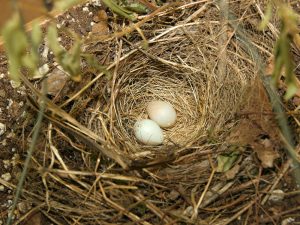 Doctor, teacher and writer Rachel Naomi Remen says that the purpose of every life is to grow in wisdom and to learn how to love better.
Doctor, teacher and writer Rachel Naomi Remen says that the purpose of every life is to grow in wisdom and to learn how to love better.
We heard Anne Hillman’s poem, We Look with Uncertainty. The poem, from her collection Awakening the Energies of Love: Discovering Fire for the Second Time. The poem is a “dare” to be human in our vulnerability and openness.
Guided Reflection
 Welcome. Last week we explored equanimity by cultivating our “grandmother’s heart.” Having a grandmother’s heart challenges us “to love all equally.” This means loving those beings and circumstances that are difficult for us. It is a practice of making the unwanted wanted. It calls us to open our hearts and steady our minds. It is also excellent preparation for aging, illness and death. We live and die by our connection and love, our empathy and compassion.
Welcome. Last week we explored equanimity by cultivating our “grandmother’s heart.” Having a grandmother’s heart challenges us “to love all equally.” This means loving those beings and circumstances that are difficult for us. It is a practice of making the unwanted wanted. It calls us to open our hearts and steady our minds. It is also excellent preparation for aging, illness and death. We live and die by our connection and love, our empathy and compassion.
Oren Jay Sofer begins his chapter on empathy by quoting Grace Lee Boggs: “The only way to survive is by taking care of one another.” We as humans need care and we also need to care in order to flourish. Oren describes empathy as a “fundamental capacity of the heart.” He writes:
. . . Appreciating connection, empathy begets generosity. Attuning to goodness, empathy blossoms in kindness. Knowing harm, empathy feeds our integrity and serves to guard our body, speech and mind. Orienting to the success of others, empathy nourishes celebration. Witnessing loss and sorrow empathy opens into compassion. understanding regret, empathy helps us forgive.
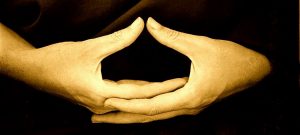 Empathy is also painful. My heart aches when I hear about one tragedy after another in the world. The deaths of seven World Central Kitchen aid workers in Gaza breaks my heart. These humanitarians were moved by empathy to care and to help the starving people in Gaza. My heart breaks thinking of Israeli hostages and their families who continue to suffer. In her essay, Not Looking Away: Thoughts on the Israel-Hamas war, Brene Brown writes: “When we look away from the pain of any people, we diminish their humanity and our own.”
Empathy is also painful. My heart aches when I hear about one tragedy after another in the world. The deaths of seven World Central Kitchen aid workers in Gaza breaks my heart. These humanitarians were moved by empathy to care and to help the starving people in Gaza. My heart breaks thinking of Israeli hostages and their families who continue to suffer. In her essay, Not Looking Away: Thoughts on the Israel-Hamas war, Brene Brown writes: “When we look away from the pain of any people, we diminish their humanity and our own.”
Listening to Brene’s interviews and reading her articles, I learned about three non-violent peace movements who are working to create the political will to end the occupation and create a way for Palestinians and Israelis to live together in dignity and equality. Parents Circle – Families Forum (PCFF). Taghyeer and Standing Together. Empathy is at the heart of their work.
 In her interview with Brene, Jewish activist Robi Damelin said:
In her interview with Brene, Jewish activist Robi Damelin said:
I am a great believer in storytelling. I’ve seen how that creates an emotional breakthrough in even the hardest of hearts.
Robi’s colleague, Palestinian activist Ali Abu Awwad said:
. . . non-violence is not just to show how human you are, but to be able to see the humanity of the other. This is non-violence.
We can’t look away from pain and conflict. Life calls us to open our hearts and share our stories. We need to recognize each other’s humanity.
Roshi Joan Halifax asks:
How can we give and accept care with strong-back, soft front compassion, moving past fear into a place of genuine tenderness? I believe it comes about when we can be truly transparent, seeing the world clearly — and letting the world see into us.
A strong back might mean feeling grounded and supported, flexible and upright, a sense of having boundaries, an ability to be in truth. A soft front might mean a sense of openness, being willing to feel empathy for the world as it is – the deep caring that enlivens compassion – a willingness to help.
In her essay, Helping, Fixing or Serving?, Dr. Rachel Naomi Remen writes:
Service rests on the premise that the nature of life is sacred, that life is a holy mystery which has an unknown purpose. When we serve, we know that we belong to life and to that purpose. From the perspective of service, we are all connected: All suffering is like my suffering and all joy is like my joy. The impulse to serve emerges naturally and inevitably from this way of seeing.
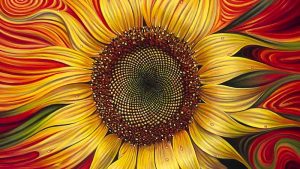 Our circle of care and practice is a loving environment to hold ourselves and others in the midst of life’s difficulties and suffering. We form the circle by gathering our attention to be fully present. We recall our intention for being here. We attune to what is happening within ourselves and then to others. Empathy arises in this feeling space. Feeling empathy is a process through which we experience “the nature of life is sacred, that life is a holy mystery which has an unknown purpose. When we serve, we know that we belong to life and to that purpose.”
Our circle of care and practice is a loving environment to hold ourselves and others in the midst of life’s difficulties and suffering. We form the circle by gathering our attention to be fully present. We recall our intention for being here. We attune to what is happening within ourselves and then to others. Empathy arises in this feeling space. Feeling empathy is a process through which we experience “the nature of life is sacred, that life is a holy mystery which has an unknown purpose. When we serve, we know that we belong to life and to that purpose.”
Anne Hillman’s poem, Looking with Uncertainty, affirms this mystery of life. She suggests:
We look with uncertainty
beyond the old choices for
clear-cut answers
to a softer, more permeable aliveness
which is every moment
at the brink of death;
for something new is being born in us
if we but let it.
We stand at a new doorway,
awaiting that which comes…
daring to be human creatures,
vulnerable to the beauty of existence.
Learning to love.
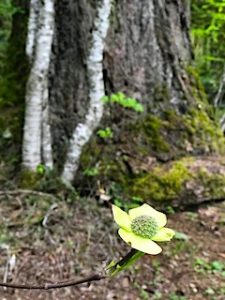 I invite you to recall your intention for being here. It may be to practice mindfulness and presence, love and compassion. To attune to what is true for you. To feel connection with others. Let yourself feel that intention in your body. Can you let the beauty of this intention inform your posture of strong back and soft front?
I invite you to recall your intention for being here. It may be to practice mindfulness and presence, love and compassion. To attune to what is true for you. To feel connection with others. Let yourself feel that intention in your body. Can you let the beauty of this intention inform your posture of strong back and soft front?
I invite you to feel the breath gently coming and going. Notice what is arises. Is it possible to allow feeling to be held in this gentle loving space? The strong back of your body and the soft front of your body supporting each other as feelings arise. Feelings arise and change as everything changes.
Sense your body settling. Notice how awareness can hold sensation, the sound of my voice, the mind making meaning. Notice also how you are held. Notice what arises and subsides in the ever-changing stream of living.
How is it to know your body with intimacy and acceptance? Can you imagine meeting others with such presence? Right now you can reflect on the last time you truly attended to someone or something. Remember who you were with, where you were, what you were sharing together. How did this caring feel in your body? Notice the feeling qualities that may be emerging now.
You might notice an impulse to push away painful feelings or contract away from unwanted experience. Let any response rest in the gentle loving holding space of awareness. Know that any time you can attune to feeling the strength of your back holding you up. As you are ready you can return to feeling the tender openness of your soft front. There is nothing to fix or help right now.
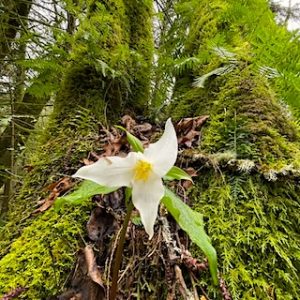 Sit with what is true for you now. See if you make room for any sensations, thoughts and emotions. Notice what happens when they are held in the space of loving awareness. What happens when grief is felt as an expression of love? When fear is recognized as a call for care and safety? Meeting these experiences with tenderness and mercy we discover our common ground.
Sit with what is true for you now. See if you make room for any sensations, thoughts and emotions. Notice what happens when they are held in the space of loving awareness. What happens when grief is felt as an expression of love? When fear is recognized as a call for care and safety? Meeting these experiences with tenderness and mercy we discover our common ground.
In our practice we hold each other up. We practice caring steady presence. We ground ourselves while remaining flexible, adaptable, and open to change. We are willing to see the world as clearly as possible. We resolve to stay open to life. We become intimate with our own hearts and minds. We become intimate with the world just as it is. We allow the world to meet us as we truly are.
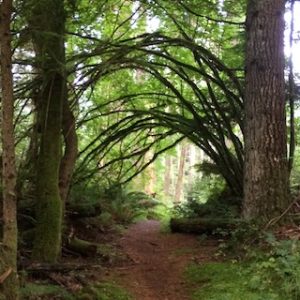 Together we sit “at a new doorway, awaiting that which comes . . . [we] dare to be human creatures, vulnerable to the beauty [and the pain] of existence.
Together we sit “at a new doorway, awaiting that which comes . . . [we] dare to be human creatures, vulnerable to the beauty [and the pain] of existence.
May we be open, tender and caring. May we feel empathy. May we know equanimity. May we be strong and present. May we live in kinship with all beings.
